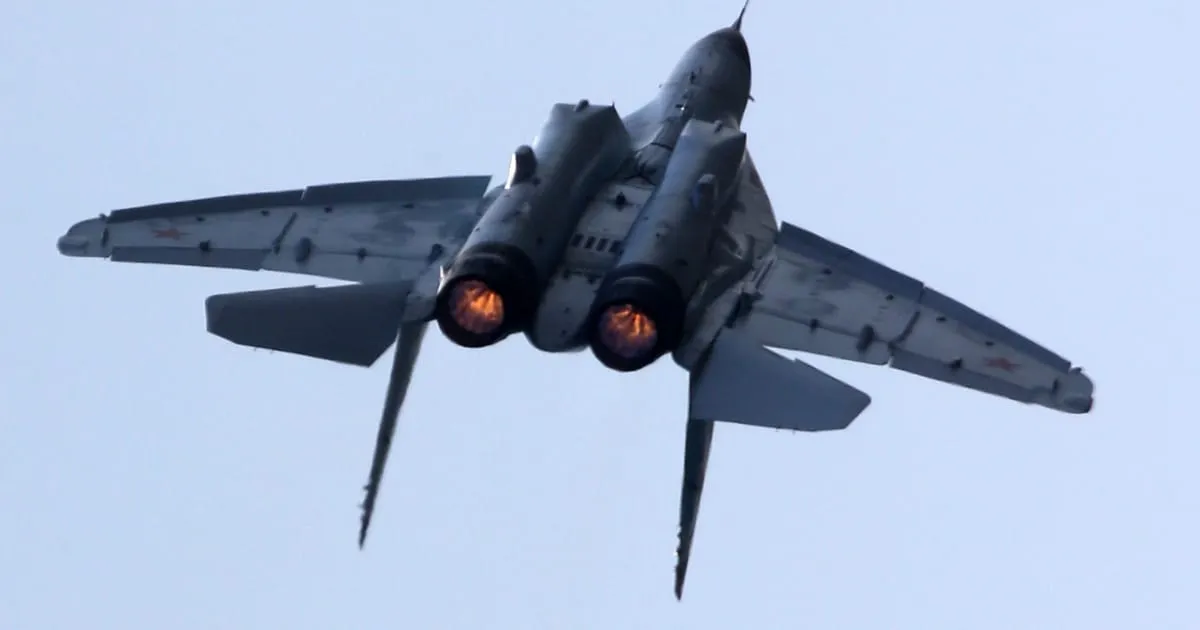
On Friday, three Russian fighter jets violated Estonian airspace, marking what appears to be the third instance within the month where the Kremlin has tested NATO's eastern border. The aircraft involved in this significant incursion were MiG-31s, heavy interceptors known for their capability to carry Russia's Kinzhal hypersonic missile. These jets approached the Estonian capital, Tallinn, according to sources briefed on the situation.
The Russian jets reportedly circled for approximately 12 minutes before NATO's response was initiated. In a swift reaction, Italian F-35s were scrambled to intercept the encroaching aircraft. This latest incident follows another aggressive move by Russia, where drones were sent into both Poland and Romania, two other key members of NATO's frontline.
NATO spokesperson, Allison Hart, confirmed the violation, stating, “Earlier today, Russian jets violated Estonian airspace. NATO responded immediately and intercepted the Russian aircraft.” Hart emphasized that this event exemplifies the reckless behavior of Russia and highlights NATO's commitment and capability to respond effectively to such provocations.
In light of this increasing aggression, Kaja Kallas, the EU foreign policy chief, described the intrusion into Estonia's airspace as an "extremely dangerous provocation." She affirmed the EU's commitment to support its member states in enhancing their defense mechanisms using European resources. Estonia's Foreign Minister, Margus Tsahkna, expressed grave concerns, stating, “Russia has violated Estonian airspace four times already this year, which is unacceptable in itself, but today’s violation, during which three fighter jets entered our airspace, is unprecedentedly brutal." He stressed the need for a robust response, advocating for an increase in both political and economic pressure on Russia.
Earlier this month, Poland reported a significant incident involving more than a dozen drones that crossed its border overnight, with some targeting the strategic hub of Rzeszów. Polish forces, in collaboration with NATO allies, successfully shot down several drones and subsequently invoked NATO's Article 4, which calls for consultations within the alliance in response to security threats. Warsaw characterized this incident as a deliberate Russian provocation.
Romania has also been a target of repeated incursions, including a drone that was tracked within its airspace for nearly 50 minutes in mid-September. Moreover, remnants from prior Russian assaults in Ukraine have frequently landed on Romanian soil, further escalating tensions in the region.
In response to these ongoing aggressive actions, European Commission President Ursula von der Leyen announced a fresh round of EU sanctions targeting Russian energy and financial transactions. She remarked on the recent airspace violations in Poland and Romania, stating, “Again and again, President Vladimir Putin has escalated, and in response, Europe is increasing its pressure.” Von der Leyen reaffirmed the effectiveness of the EU's sanctions as a tool of economic pressure, vowing to maintain this strategy until Russia is willing to engage in negotiations.
This developing situation continues to unfold as NATO and European leaders remain vigilant in their responses to Russian military activities in the region.